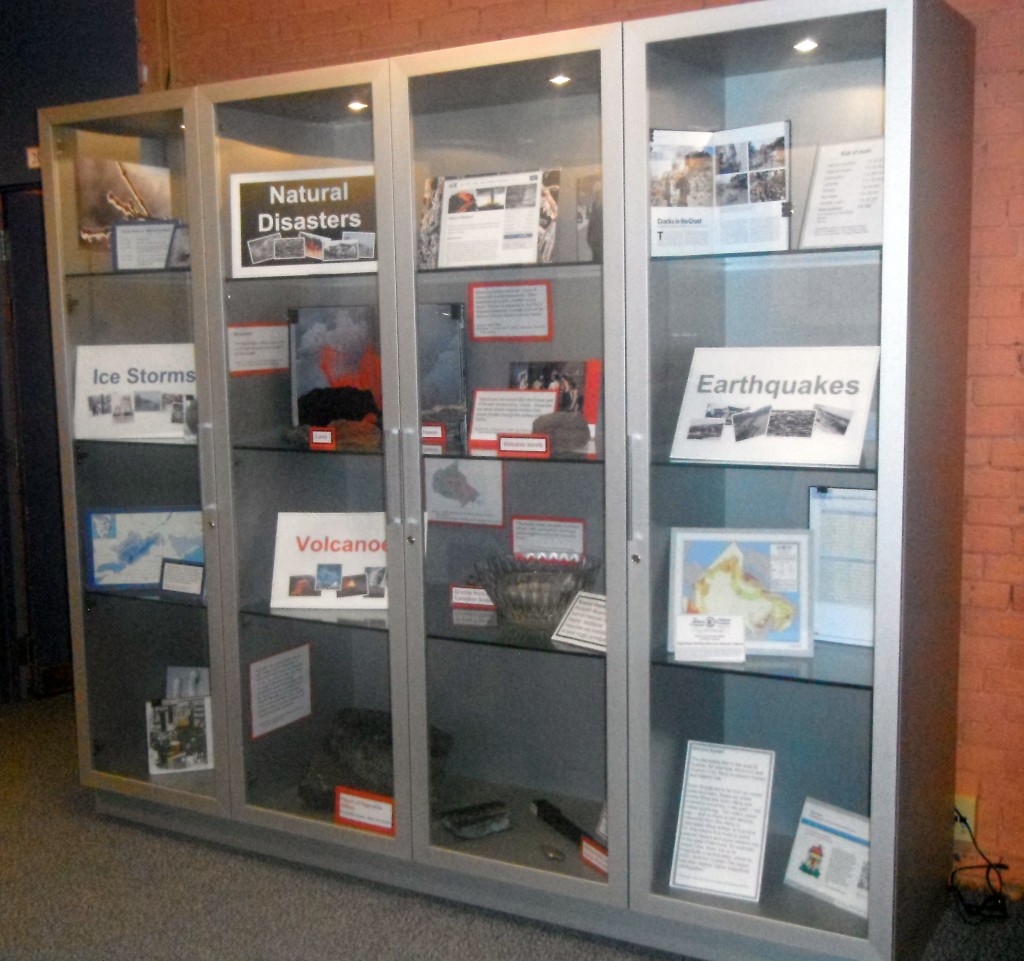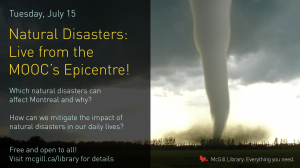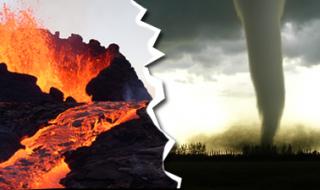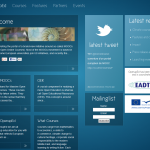
Despite a risk of severe thunderstorms (very fitting for the evening’s theme!), about 50 participants braved their way to Schulich Library of Science and Engineering on Tuesday night for “Natural Disasters – Live from the MOOC’s Epicentre!” to hear all about Montreal-area natural disasters. A big thanks to everyone who joined us, and an even bigger thanks to Professors John Stix and John Gyakum for presenting loads of information on different types of natural disasters and their likelihood of taking place in Montreal. Their presentation was delivered in a conversational, fact-filled and thought-provoking style that inspired the audience.
So what natural disasters could happen here? Earthquakes, ice storms (of course!), and even hurricanes are all possibilities. Even though Professor Stix confirmed that Mount Royal isn’t a volcano, he did recount a dream he once had that Mount Royal erupted and lava came flowing down the middle of campus! (This just goes to show you the kind of things geologists dream about!) The professors also talked about increased risk of natural disasters due to human activities (such as the increased chances of extreme weather events due to rising CO2 emissions from the combustion of fossil fuels and the increased likelihood of earthquakes from fracking to obtain natural gas). Professor Gyakum showed a video that gives the analogy of steroid use by baseball players to explain how climate change works (available here). He also explained that increased water vapor in the atmosphere caused by increased CO2 emissions ups the chances of more extreme weather, such as ice storms in Montreal. We are, after all, in one of North America’s freezing rain capitals. So make sure to keep those candles and bottled water handy this winter!
Their talk generated a lot of questions such as: Is there a risk of Yellowstone erupting anytime soon? Professor Stix says it is a very active geologic area, which may explain this recent news story . However, he also said “I don’t lose sleep over it.” Another participant asked: Generally, how prepared are Montreal’s buildings for an earthquake? Members of the audience concluded that we are not so prepared, especially considering the number of old buildings we have here.
In case you missed the event, you can always come check out the Natural Disasters display with information, photos and specimens related to ice storms, volcanoes and earthquakes. It is located on the main floor of the Schulich Library and will be up until, at least, the end of summer.
Finally, a special thank you to Teaching and Learning Services and Ingrid Birker from the Redpath Museum’s Science Outreach and Public Program for helping to make the evening a success.




